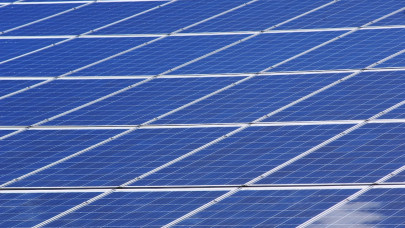The EU's existing emissions trading scheme will now be broadened to include sea and air transport.
Carbon emissions from individuals' vehicles and homes will also be counted, though at a capped level until 2030.
And a special €88 billion social climate fund will be created in 2026 to compensate for the cost of Europe's green shift.
Legislators approved a deal agreed last year by negotiators from EU countries and Parliament, to reform the carbon market to cut emissions by 62% from 2005 levels by 2030, which is designed to deliver the EU's emissions-cutting targets.
After nearly two years of EU negotiations, the member states' approval means the policy will now pass into law. The EU Parliament approved the deal last week.
Of the 27 EU countries, 24 voted for the reform. Poland and Hungary opposed it, while Belgium and Bulgaria abstained.
Poland, which has previously called for the carbon market to be suspended or its price capped to ease the burden on industry, said EU climate policies set unrealistic goals.
The incoming legislation supports the EU goal of cutting 55% of greenhouse gas emissions in the bloc by 2030, compared to the levels recorded in 1990.
The reform is set to hike the cost of polluting for sectors including cement manufacturing, aviation, and shipping, while also raising billions of euros through CO2 permit sales, for national governments to invest in green measures.
Heavy industries will lose the free CO2 permits they currently receive by 2034, while airlines will lose theirs from 2026, exposing them to higher CO2 costs. Emissions from ships will be added to the scheme in 2024.
One measure that will be seen by companies importing into the EU will be a carbon tax on imports, phased in from 2026 and levied to ensure EU industries are not undercut by firms not facing the same added costs.
It will initially cover the most polluting sectors – producers of steel, aluminum, cement, fertilizer, and electricity – and could be expanded in the future to organic chemicals and polymers.













